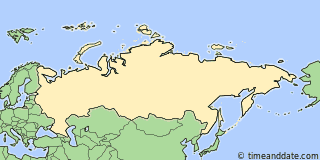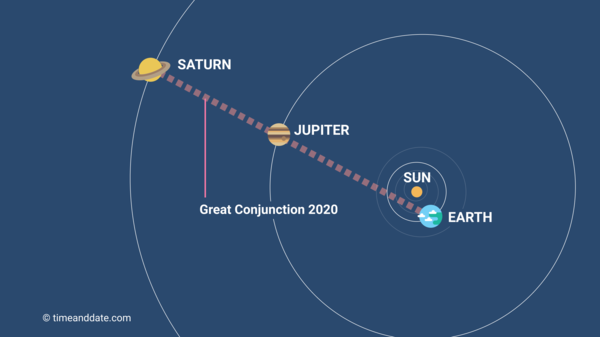| Night Time: | 18 hours, 18 minutes |
|---|---|
| Sunset: | Dec 5 at 1:45 pm |
| End of Twilight*: | Dec 5 at 3:46 pm |
| Start of Twilight*: | Dec 6 at 6:02 am |
| Sunrise: | Dec 6 at 8:03 am |

Coming Up in December
Nights are at their darkest in the Northern Hemisphere, and the Full Moon rides high in the sky. Meanwhile, the Southern Hemisphere enjoys long, bright evenings.
Our Interactive Night Sky Map simulates the sky above Ural Mountains. The Moon and planets have been enlarged slightly for clarity. On mobile devices, tap to steer the map by pointing your device at the sky. Need some help?
Tonight's Sky in Ural Mountains, Dec 5 – Dec 6, 2025
Mercury rise and set in Ural Mountains
View just before sunrise.
Mercury is close to the Sun and can only be seen shortly before sunrise. Try finding a good, unobstructed view of the horizon.
Sat, Dec 6 ↑5:37 am
Time:
Altitude: °
Direction: °
Venus rise and set in Ural Mountains
Fairly close to the Sun. Visible only before sunrise and/or after sunset.
Venus is just 8 degrees from the Sun in the sky, so it is difficult to see. Venus is visible by day, but may be hard to find.
Sat, Dec 6 ↑7:15 am
Time:
Altitude: °
Direction: °
Mars rise and set in Ural Mountains
Very close to Sun, hard or impossible to see.
Mars is just 9 degrees from the Sun in the sky, so it is difficult or impossible to see it.
Fri, Dec 5 ↓2:00 pm
Time:
Altitude: °
Direction: °
Jupiter rise and set in Ural Mountains
View in the early morning.
Jupiter can be seen for more than 15 hours during the late night/early morning and until sunrise.
Fri, Dec 5 ↑4:34 pm
Time:
Altitude: °
Direction: °
Saturn rise and set in Ural Mountains
View after sunset.
Saturn can be seen for more than 9 hours after sunset and during the late evening/early night.
Fri, Dec 5 ↓11:24 pm
Time:
Altitude: °
Direction: °
Uranus rise and set in Ural Mountains
Up most of the night. Bring binoculars.
Uranus is roughly in the opposite direction of the Sun, so it is visible during most of the night. You may need binoculars.
Sat, Dec 6 ↓6:42 am
Time:
Altitude: °
Direction: °
Neptune rise and set in Ural Mountains
View after sunset. Use binoculars.
Neptune can be seen for more than 10 hours after sunset and during the late evening/early night. Very faint, use binoculars.
Fri, Dec 5 ↓11:57 pm
Time:
Altitude: °
Direction: °
Planets Visible in Ural Mountains
| Planetrise/Planetset, Fri, Dec 5, 2025 | ||||
|---|---|---|---|---|
| Planet | Rise | Set | Meridian | Comment |
| Mercury | Sat 5:37 am | Sat 1:24 pm | Sat 9:31 am | Average visibility |
| Venus | Sat 7:15 am | Sat 1:28 pm | Sat 10:22 am | Slightly difficult to see |
| Mars | Fri 9:05 am | Fri 2:00 pm | Fri 11:32 am | Extremely difficult to see |
| Jupiter | Fri 4:34 pm | Sat 11:00 am | Sat 1:47 am | Perfect visibility |
| Saturn | Fri 12:17 pm | Fri 11:24 pm | Fri 5:50 pm | Great visibility |
| Uranus | Fri 12:58 pm | Sat 6:42 am | Fri 9:50 pm | Average visibility |
| Neptune | Fri 12:11 pm | Fri 11:57 pm | Fri 6:04 pm | Difficult to see |












